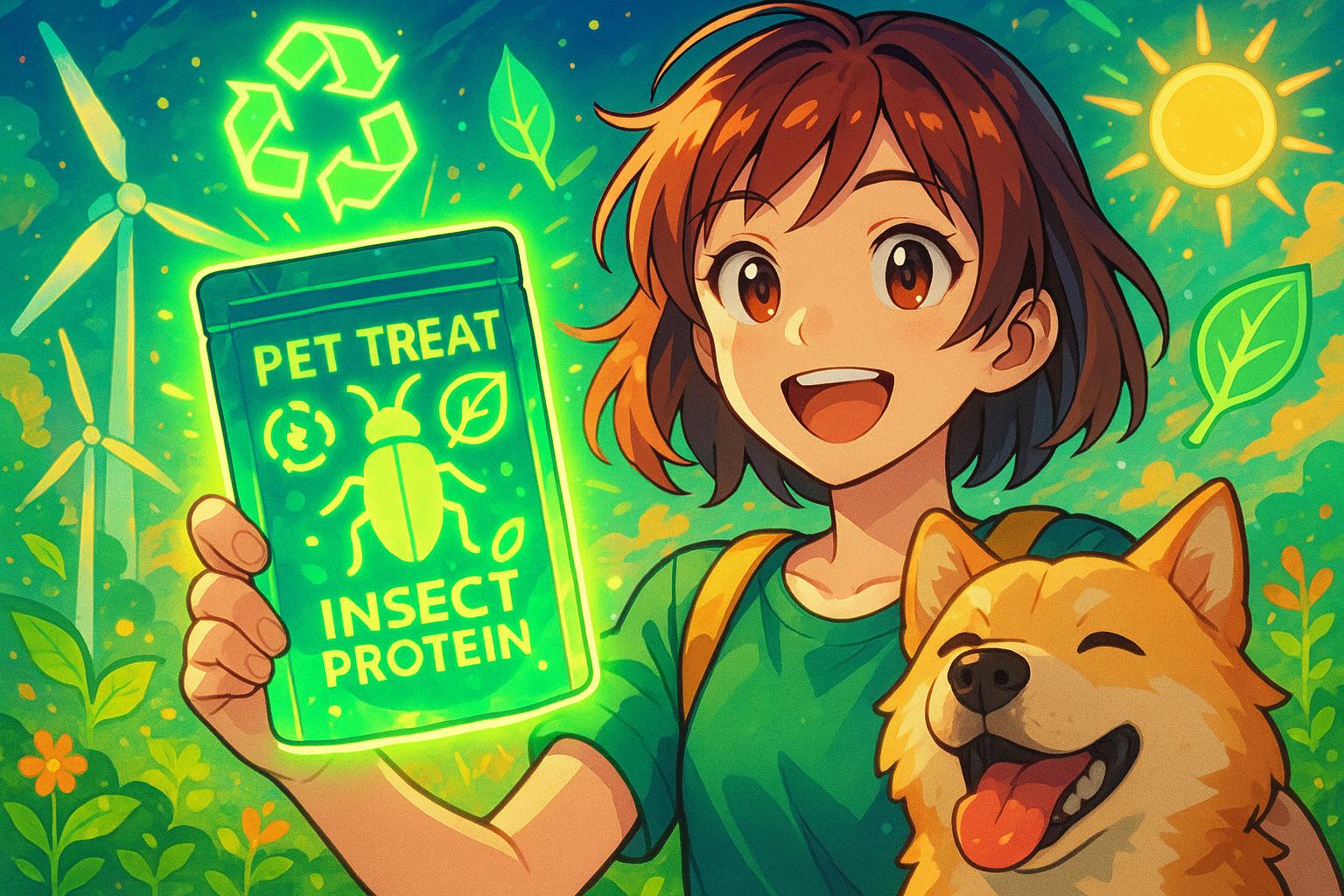The UK pet food market is undergoing a transformative shift as the demand for sustainable nutrition solutions rises, notably within the realm of insect-based products. Some Grub, an emerging brand in this sector, has recently secured £270,000 in funding aimed at enhancing its market presence and spearheading what it describes as “Britain’s insect food revolution.” This financial boost is part of a broader trend in the pet food industry, reflecting a growing awareness of the environmental impact of traditional meat sources and a shift towards more sustainable alternatives.
Founded by Ollie Harkus and Ben Chapman, Some Grub stands out by offering pet treats enriched with insect protein that promises nutritional benefits, such as high levels of omega-3 fatty acids. The founders assert that this innovative approach is not only healthier for pets but also significantly less taxing on the planet compared to conventional pet food production methods. As awareness around environmental sustainability intensifies, Some Grub aims to capture a share of the pet ownership market by appealing to eco-conscious consumers seeking alternatives.
This surge in insect-based pet food is corroborated by other recent developments in the industry. For instance, Tuggs, another UK-based startup focusing on fresh insect-based dog food, raised an impressive £1.1 million in its latest funding round. This company, which operates a direct-to-consumer subscription model, has reportedly tripled its revenues in just nine months, reflecting the increasing consumer acceptance of insect protein in pet diets. Such growth signifies not just a passing trend but a potential shift in the foundational approaches to pet nutrition in the UK.
Moreover, the Grub Club, yet another contender in this space, was recently recognised by Sky Media’s Zero Footprint Fund for its commitment to sustainability. The brand will receive £250,000 in media support to help amplify its message about the environmental benefits of insect-based nutrition. Grub Club's model prioritises fresh ingredients and innovation, linking sustainability directly with health benefits for pets – a narrative that resonates with today’s conscious consumer.
The broader implications of this movement towards insect protein are evident in various reports focusing on the sustainability issue within the pet food industry. Traditional meat production is known to contribute substantially to agriculture's carbon footprint, with livestock farming requiring vast land and water resources. In contrast, insect farming necessitates far less space and is energy-efficient, presenting a more eco-friendly option for pet food manufacturers.
With such developments, the potential for insect-based pet food may extend beyond mere trend status, possibly establishing a new category within the pet care market. As brands like Some Grub and its competitors innovate, they highlight a shift towards a more holistic approach to pet nutrition—one that prioritises not just pet health but ecological considerations as well. This evolution within the dog and cat food sectors reveals a growing synergy between trending dietary preferences and environmental responsibility, which may well shape the future landscape of pet nutrition.
As this “insect food revolution” takes shape in the UK, it poses significant questions about consumer attitudes towards pet food sources and the implications for sustainability in the pet care industry. The next few years will likely provide key insights into both economic viability and consumer acceptance in a market that is steadily evolving towards greener practices.
Reference Map
- Paragraph 1: Sources 1, 2
- Paragraph 2: Source 5
- Paragraph 3: Sources 3, 6
- Paragraph 4: Source 4
- Paragraph 5: Sources 6, 7
- Paragraph 6: Sources 1, 2, 5
Source: Noah Wire Services
